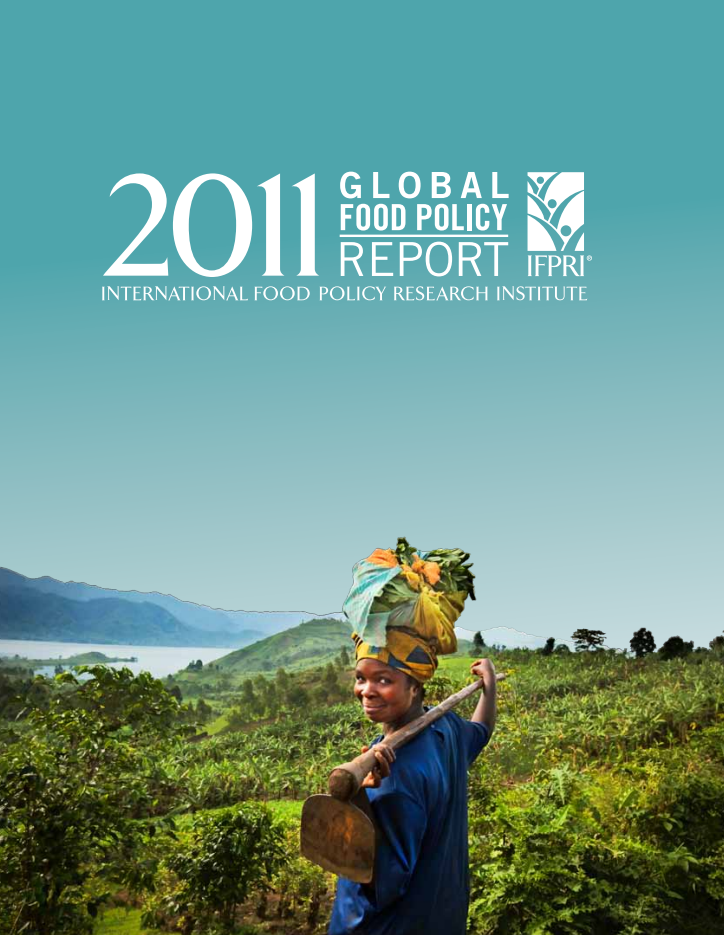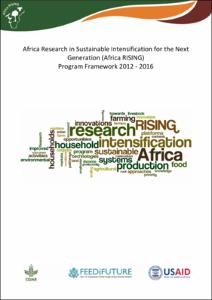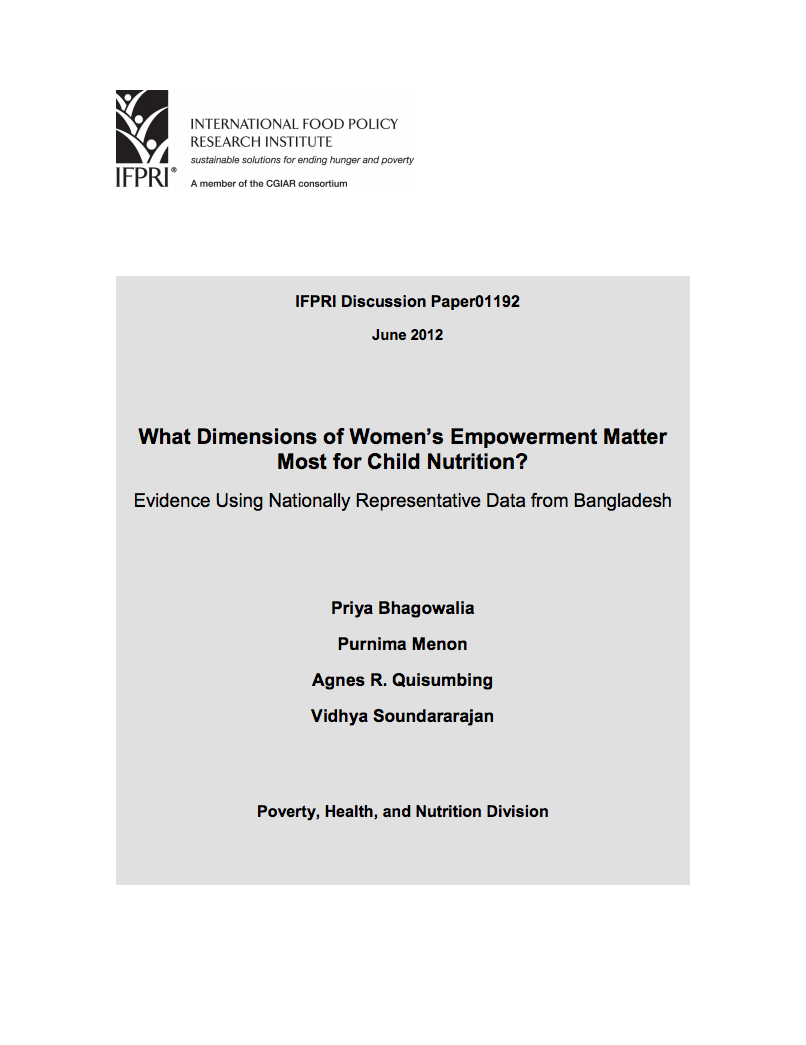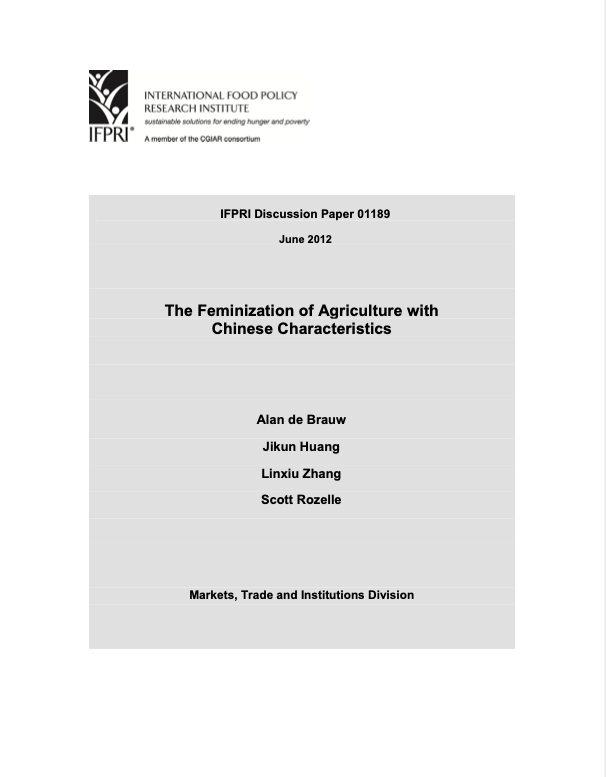Focal point
Location
About IFPRI
The International Food Policy Research Institute (IFPRI) provides research-based policy solutions to sustainably reduce poverty and end hunger and malnutrition in developing countries. Established in 1975, IFPRI currently has more than 500 employees working in over 50 countries. It is a research center of theCGIAR Consortium, a worldwide partnership engaged in agricultural research for development.
Vision and Mission
IFPRI’s vision is a world free of hunger and malnutrition. Its mission is to provide research-based policy solutions that sustainably reduce poverty and end hunger and malnutrition.
What We Do
Research at IFPRI focuses on six strategic areas:
- Ensuring Sustainable Food Production: IFPRI’s research analyzes options for policies, institutions, innovations, and technologies that can advance sustainable food production in a context of resource scarcity, threats to biodiversity, and climate change. READ MORE
- Promoting Healthy Food Systems: IFPRI examines how to improve diet quality and nutrition for the poor, focusing particularly on women and children, and works to create synergies among the three vital components of the food system: agriculture, health, and nutrition. READ MORE
- Improving Markets and Trade: IFPRI’s research focuses on strengthening markets and correcting market failures to enhance the benefits from market participation for small-scale farmers. READ MORE
- Transforming Agriculture: The aim of IFPRI’s research in this area is to improve development strategies to ensure broad-based rural growth and to accelerate the transformation from low-income, rural, agriculture-based economies to high-income, more urbanized, and industrial service-based ones. READ MORE
- Building Resilience: IFPRI’s research explores the causes and impacts of environmental, political, and economic shocks that can affect food security, nutrition, health, and well-being and evaluates interventions designed to enhance resilience at various levels. READ MORE
- Strengthening Institutions and Governance: IFPRI’s research on institutions centers on collective action in management of natural resources and farmer organizations. Its governance-focused research examines the political economy of agricultural policymaking, the degree of state capacity and political will required for achieving economic transformation, and the impacts of different governance arrangements.
Research on gender cuts across all six areas, because understanding the relationships between women and men can illuminate the pathway to sustainable and inclusive economic development.
IFPRI also leads two CGIAR Research Programs (CRPs): Policies, Institutions, and Markets (PIM) andAgriculture for Nutrition and Health (A4NH).
Beyond research, IFPRI’s work includes partnerships, communications, and capacity strengthening. The Institute collaborates with development implementers, public institutions, the private sector, farmers’ organizations, and other partners around the world.
Resources
Displaying 561 - 565 of 1521Biofuels, Environment, and Food: The Story Gets More Complicated
Global Food Policy Reports 2011
The 2011 Global Food Policy Report is a new annual IFPRI publication that provides a comprehensive, research-based analysis of major food policy challenges at the global, regional, national, and local levels. It highlights important developments and events in food policy that occurred in 2011, discusses lessons learned, offers policy recommendations, presents IFPRI’s food policy tools and indicators, and takes a look forward into 2012. The Report reflects perspectives from across the globe.
Africa Research in Sustainable Intensification for the Next Generation (Africa RISING) program framework 2012 - 2016
What Dimensions of Women’s Empowerment Matter Most for Child Nutrition?
We use data from the 2007 Bangladesh Demographic and Health Survey to examine the relationship between women’s status and nutrition in Bangladesh using indicators of empowerment such as mobility, decisionmaking power, and attitudes toward verbal and physical abuse. We also examine the role of variables reflecting maternal education and height, in relation to child nutrition. All models control for age and sex of the child, household wealth, and region.
The Feminization of Agriculture with Chinese Characteristics
The objectives of this paper are to help build a picture of the role of women in China’s agriculture, to assess whether or not agricultural feminization has been occurring, and if so, to measure its impact on productivity. To meet these goals, we rely on three datasets that allow us to explore who is working on China’s farms and the effects of the labor allocation decisions of rural households on productivity. We find that since 2000, the role of women has increased both in the supply of farm labor and in the duties that women take on in the management of farms.







